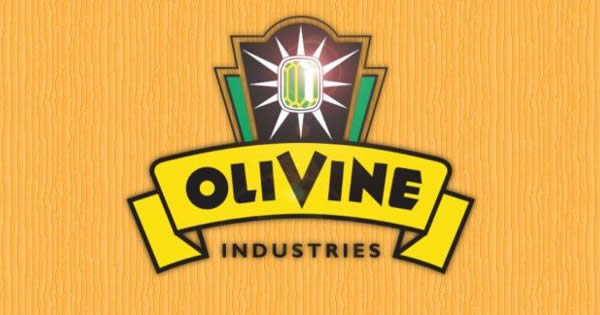Singapore-headquartered agribusiness group, Wilmar International, which last year completed the takeover of a 49 percent shareholding in fast-moving consumer goods group, Olivine Industries, has failed to recapitalise the company.

Wilmar was expected to inject US$32 million into Olivine to capitalise the business but reliable sources this week told C&M that the company “had completely failed to inject fresh capital into the company and gone quiet.
“They have been quiet ever since they acquired the shares,” one source said.
The Olivine shares were held by the AICO Olivine Holdings Share Trust and amounted to 14 179 880 ordinary shares. The Asian giant, which also has interests in Chitungwiza-based Surface Investments, had negotiated with AICO for its Olivine stake with the view to injecting fresh capital into Olivine.
It was not immediately clear why the Singaporean firm was now reneging on its earlier commitment, but speculation was that its failure to boost the Olivine business, in which it had not secured control, could help Surface to push its products and gain an advantage over Olivine, whose products are iconic brands in the local market.
Olivine’s managing director, Jonas Mushangari, declined to comment when contacted by C&M, and referred all questions to the board chairman, Narrotam Somani, who represents the interests of Wilmar on the board.
Somani could not be reached for comment as his mobile phone was not reachable.
“Wilmar concluded the 49 percent shareholding take-over (from AICO) of Olivine Industries last year but they have failed to recapitalise the company as promised,” said one source.
Olivine, one of the country’s largest producers of domestic consumption goods like cooking oil and soap, has been battling to offset mounting debts estimated at about US$20 million.
Among its creditors has been the government of Zimbabwe.
Olivine is majority-owned 51 percent by the State-controlled Industrial Development Corporation (IDC).
IDC and Cottco took over Olivine Industries following the exit of US firm, Heinz, at the height of hyper-inflation in 2008.
IDC has also been searching the exit door from the business, which requires a strong shareholder with capacity to leverage its balance sheet to stabilise its operations.
Wilmar had been expected to be that shareholder, but it was not immediately clear if the company would offer to purchase IDC’s shares in Olivine to gain control of the company.
But even in the absence of that, Wilmar had pledged to extend a bailout to Olivine that could have seen further growth for the company in the Southern Africa market.
Wilmar’s culinary cooking oil products are already stocked in major retailers in South Africa like Shoprite, Pick’n Pay, Spar and Massmart.
In 2009, Cottco, then operating as AICO, spurned a US$10 million offer by the Johannesburg Stock Exchange-listed Sunoil Refineries, which had expressed interest in taking over the 49 percent shareholding.
C&M reported then that Sunoil Refiners was pushing for the outright takeover of Olivine Industries through the purchase of AICO and IDC’s stakes at no less than US$10 million.
IDC controls a 51 percent stake in Olivine.
As part of its proposal for the takeover of Olivine, a German plant manufacturer, KHS, had been contracted to provide new machines for the Zimbabwean concern to transform it into a viable regional food and detergent manufacturing giant supplying margarine, cooking oil and soaps into the Southern African Development Community.
Sunoil Refiners is the manufacturer of the Sunstar brand of cooking oil, Star Brite soap, Sunspread magarine and many other products that became household names in Zimbabwe in 2009.
It employed more than 5 000 workers at its Durban plant and in other centres in South Africa in 2009. Wilmar’s business activities include oil palm cultivation, oil seed crushing, edible oil refining, sugar milling and refinery, speciality fat, oleochemical, biodiesel and fertiliser manufacturing and grain processing.
It has over 450 manufacturing plants and an extensive distribution network covering China, India, Indonesia and 50 other countries.
Olivine is operating at between 25 and 30 percent capacity utilisation. Shortages of raw materials mainly soya beans and cotton seed, a liquidity crunch and stiff competition from imported products have affected the company’s viability over the years.
The company has been in operation for more than 80 years now after having been established in 1931. Olivine had grown to become a leading manufacturer of a wide range of consumer and industrial products such as vegetable oils, margarines, bakers’ fats, soaps, candles, dried beans and canned foods. Financial Gazette






